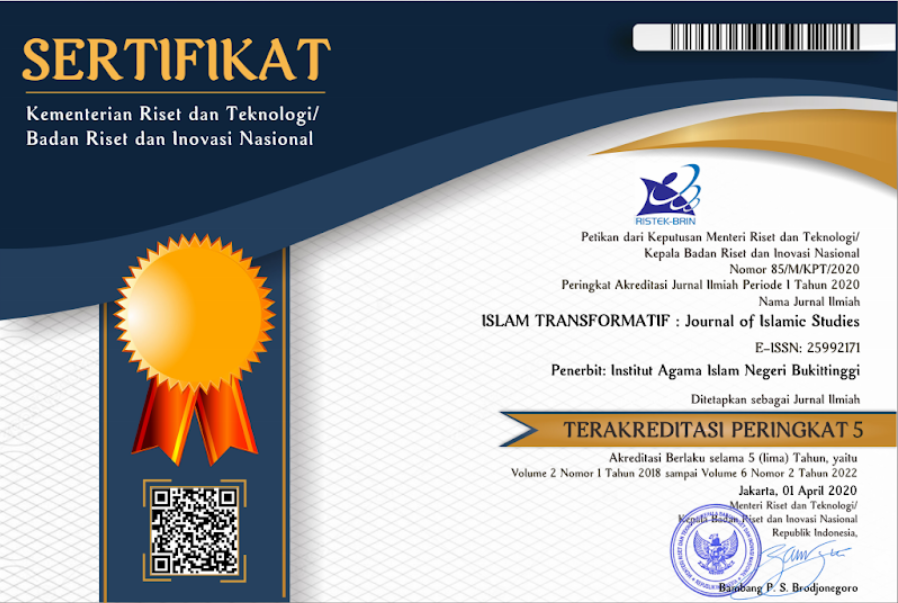Kritik Hadis Zikir Berjama'ah
DOI:
https://doi.org/10.30983/it.v2i1.648Abstract
It is still a debate by Muslims community about the right practice of the dhikr, because the explanation in the Qur’an of the issue of dhikr is very common. Meanwhile the hadith of the Prophet provides also various information about this issue. The guidance of the hadith about the practice of dhikr relies on the practice which is done by the Prophet, then emulated and imitated by his friends and became the practice of sunna for Muslims until today. One of the issues sahabah is the implementation of zikr in congregation (dhikr jama'i). Dhikr in congregation is gathering some people with one voice chanting dhikr. There are pros and cons regarding this practice of Dhikr. There are groups who think that the congregation of Dhikr is an act of heresy and in contrast, there is a presumption that the act is sunnah. This paper will discuss the issue, seen from the perspective of Hadith. This research uses library research method by reviewing the hadiths related to the congregation of Dhikr followed by the criticism of Hadiths’ Sanad and Matan, and the understanding of those hadiths.Downloads
Submitted
2018-07-15
Accepted
2018-11-29
Published
2018-12-10
Issue
Section
Articles
License
Authors who publish with this journal agree to the following terms:
- Authors retain copyright and grant the journal right of first publication with the work simultaneously licensed under a Creative Commons Attribution-ShareAlike 4.0 International License that allows others to share the work with an acknowledgment of the work's authorship and initial publication in this journal.
- Authors are able to enter into separate, additional contractual arrangements for the non-exclusive distribution of the journal's published version of the work (e.g., post it to an institutional repository or publish it in a book), with an acknowledgment of its initial publication in this journal.
- Authors are permitted and encouraged to post their work online (e.g., in institutional repositories or on their website) prior to and during the submission process, as it can lead to productive exchanges, as well as earlier and greater citation of published work (See The Effect of Open Access).













